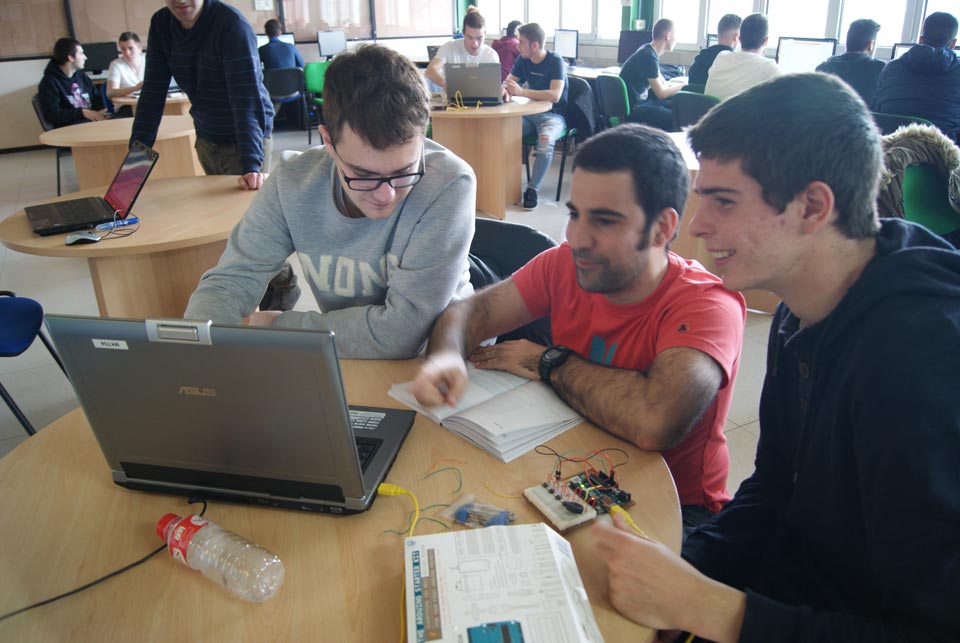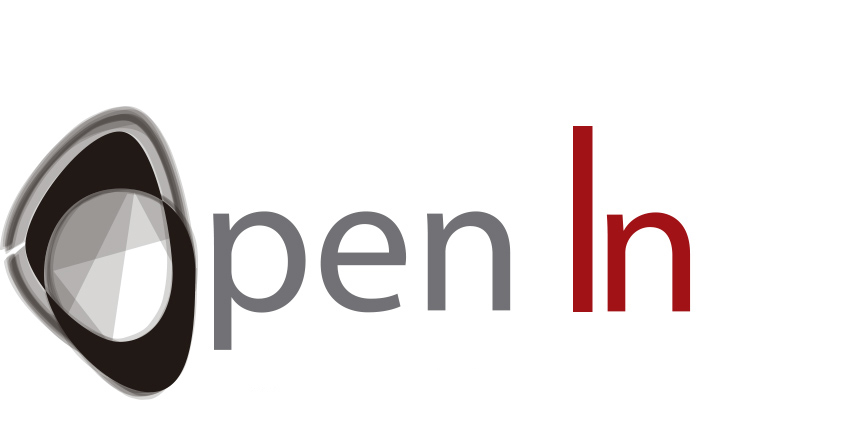Europe is looking at Industry 4.0 – or the Digital Transformation of Industry – as the opportunity to operate a new kind of tech transformation all over the world. This requires raising awareness of both students and teachers to open source hardware and software alternatives for designing automated industrial systems. There are alternatives available at a lower cost than proprietary systems that might boost the innovative contribution to automation systems by small and medium enterprises (SMEs) as well as by young students.
These objectives have guided our project. We have offered open and innovative tools for the development of professional automated industrial systems based on Arduino platforms. Our approach has fostered an easy access to new technology in areas where training is traditionally expensive and rigid. OPENIN takes advantage of free platforms which are flexible thus providing higher level of innovation and continuous evolution available to everyone.
The OPENIN approach was tested with students and professionals related to the industrial automation field. Each OPENIN partner promoted two pilot editions of the course previously developed under the project. This course is based on Arduino, an open-source electronics platform that is very versatile in the way it can be programmed and used with different hardware peripheral in a great variety of projects.
The pilot courses relied upon the use of different approaches to teach Arduino programming and the use of different hardware components as a way to democratize the use of open source micro-controllers. All the materials were developed by the OPENIN partners.
Three different teaching/learning approaches were used in the OPENIN courses: traditional classroom Hands-On sessions; simulation of Arduino installations using TinkerCad Online Simulator and a remote laboratory named ArdLab. The attendants of the pilot courses came from different areas of study, with the majority having little or even no background knowledge at all of Arduino, electronics or programming. This was expected and desired since OPENIN is aiming to provide an entry point to the micro-control world for anyone with an interest in automation regardless of their technical background. The course covers a broad range of subjects in an introductory way and is guided by a practical, hands-on approach.
The attendees were requested to evaluate the course immediately after concluding it. This assessment was based on a questionnaire that, among other aspects aimed at collecting feedback on the strengths of the course materials and the different teaching/learning approaches.
The strengths of the Arduino course were found to be its range, its accessibility and its practicality.
Among the different learning experiences (face-to-face hands-on sessions, using a simulator and the remote lab). The Hands-On approach came through as the most appealing way to learn Arduino and the most complete, in a sense that it exposes students to practical electronics issues. The possibility to reduce costs was identified as the biggest advantage of either the Simulator or the Remote Lab. Another issue revealed by the students was the possibility of improving the Remote Lab experience through the use of higher quality web cams with several views/angles over the Arduino installation and its components, through a wider range of available components or through the use of i2c devices and/or infrared communication.
In the field of education, remote access to real engineering experiments is growing and is currently accepted as a complementary solution to the traditional hands-on labs. Therefore, a remote laboratory integrating an Arduino device able to control specific electronic experiments was idealized and developed. With this laboratory, students can write Arduino code and, through a simple web browser running on a PC or on any mobile device, they are able to program a remotely located Arduino device in order to test their programs.

